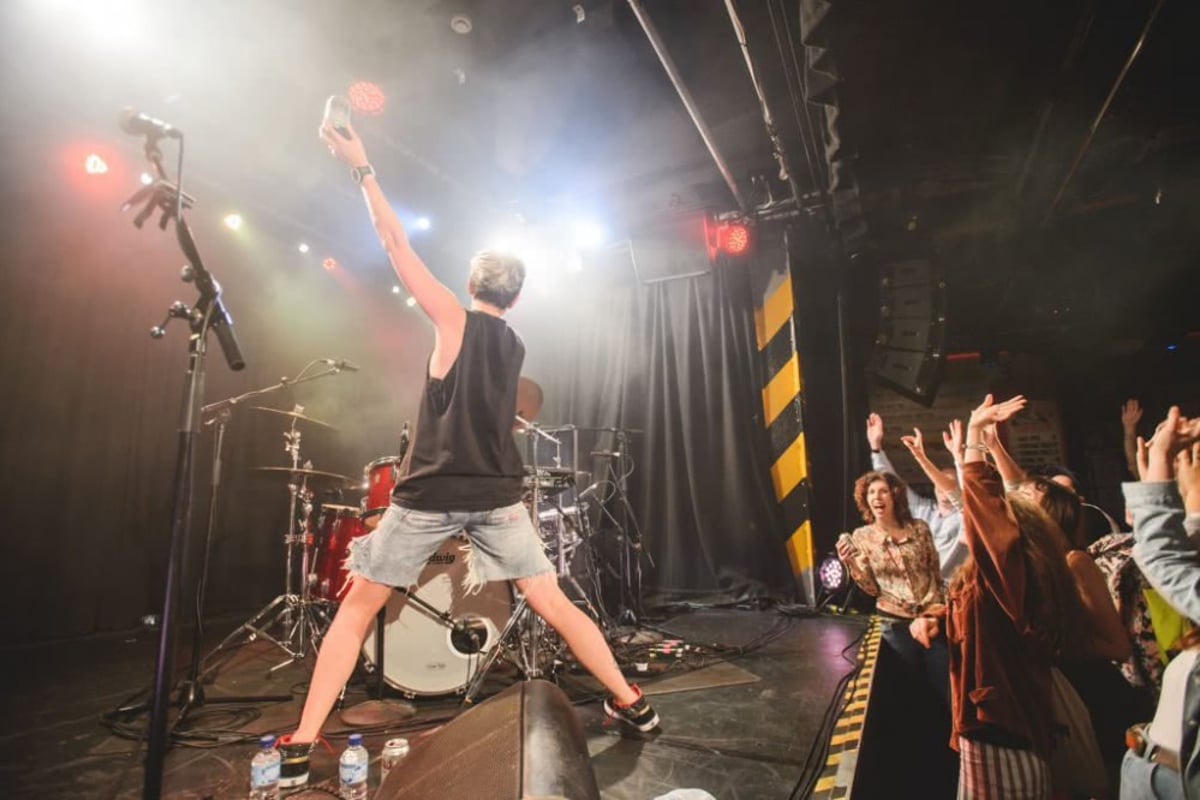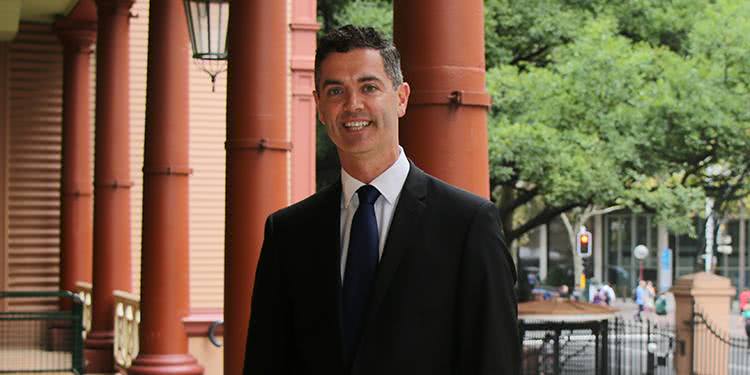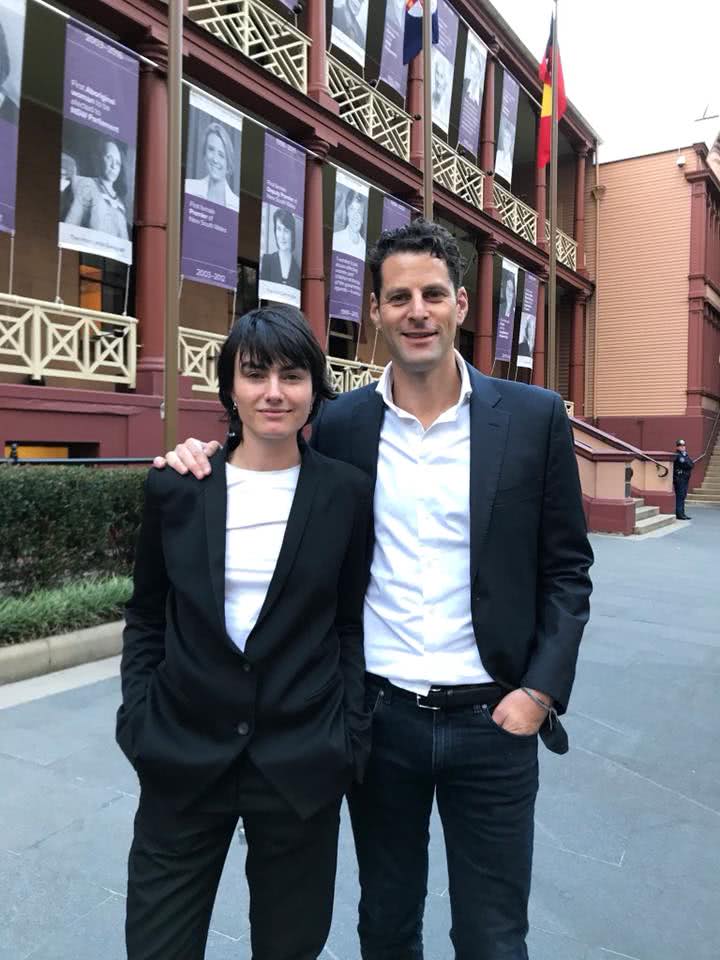Labor MLC John Graham: There is a live music venue crisis in NSW

“I think the MP’s have turned up, not quite sure what’s going on in the industry, and pretty rapidly realised there definitely is a problem.”
The Hon. John Graham, Labor Member of the Legislative Council, spoke to TIO just before the latest round of Q&A sessions with the music industry this week for the NSW Music Inquiry at Parliament House.
Australia’s main streaming platforms were thrust under the microscope, while reps from Secret Sounds, Keep Sydney Open, Sounds Australia, Support Act have been offering clarity and insight into the live and recorded music sectors.
The NSW Music Inquiry was formed last November to take a closer look at the state government’s efforts in reviving Sydney’s nightlife following the implementation of unpopular lockout laws to tackle alcohol-related violence.
John Graham MLC is especially invested in the Inquiry, he formed Labor Loves Live Music in 2012, to call on councils to enact planning controls that promote live music and to protect existing venues from vexatious complaints. Two years later, the city’s live music sector was ravaged by the lockout laws, resulting in the closure of 176 music venues and a 40% drop in live music revenue.
In the Q&A below, John Graham outlines his interest in the Inquiry, why he thinks Parliament hasn’t truly engaged the music industry until now, what kind of investment he’d like to see in contemporary music, and more.
What’s your direct relationship with this music inquiry?
I’ve probably got two interests in it. One, I’m a member of the Inquiry, so I’m a Labor member of the Upper House Inquiry into the sector. The reason why I’ve campaigned for it to happen and why I have worked with the other MP’s to make sure that it happened was, it’s one of my policies’ interests.
I set up Labor Loves Live Music back in 2012. I’ve had an interest in the area and now I’ve been in Parliament eighteen months and it’s one of my priorities to have the Parliament have a look at what’s going on and see if we can improve things in Sydney and New South Wales.
What is the main thing that you would like to see come out of this Music Inquiry?
I think we’ve got to change the culture in Sydney and New South Wales.
I think if it works well we’ll change some laws, we’ll change how the big agencies are working with the sector, and we’ll change the priorities we’ve put on music, but it’s probably the last one that’s the most important because you could change a few of these things and still be stuck where we are. So, I think for me that’s the big worry but also that’s why there’s a lot of potential here.
When you say ‘priority’ you basically mean funding, is that right?
Yes, this should touch on funding, absolutely and one of the things that’s already become clear is that we now know what the funding is for contemporary music in New South Wales: just one million dollars a year, compared to twenty-seven million dollars over four years in Victoria, so we know what the contrast is for the first time.
Funding absolutely is an important part of it but also regulation is clearly part of what’s gone wrong, so we’ve got at the moment an entertainment venue crisis driven by how hard we’ve made it to keep the door of the venue open. That’s about noise, planning, a whole lot of laws that are in place for venues.

The Hon. John Graham, Labor Member of the Legislative Council
What was your biggest take away from all the Parliamentary Inquiries that have happened so far?
Look, I think the MP’s have turned up, not quite sure what’s going on in the industry, and pretty rapidly realised there definitely is a problem, so the fact there is a problem, that there is a venue crisis, I think is what’s really immediately become clear. Parliament has never really talked to the music industry before, this is the first time we’ve ever engaged with them formally.
Why do you think that is?
It’s a beautiful sector doing some fantastic things but not really formally interacting much with Government except that it has got a lot more complicated in recent years as the industry has come under pressure, so this is the first formal discussion and pretty quickly, and that’s really unusual.
We normally talk to industries this big, there are plenty of other industries out there that Government is formally engaging with, that the Parliament is fully engaging with, music being one of those.
It is happening, there is a realisation there is a crisis and now the search is really turning to ‘what are the set of things we could do get this in a better place?’ So, that’s we we are up to with the inquiry so far.
Where does that disconnect come from? Is it because the Government doesn’t see music as an economic benefit to them?
I think it’s about the nature of industry. It’s always been seen as a part of the cultural industry that could survive by itself, except that the world has changed in the last five or ten years in recorded music, in venues, with venues coming under pressure. So it’s an industry that has been going through a transformation for quite a while and also I think it’s because it’s such a disperse sector, it’s not highly concentrated.
You’ve got a lot of individual, often or very small, businesses doing their own thing, they find everyone is flat chat that they find it hard to engage with Government, so there a couple of clues about why but that’s just the history of it.
Has there been an overall feeling from the industry figures who has come forward to take part in the inquiry?
It’s a mix of some frustrations at some of the hurdles but everyone’s aware that there’s pretty massive potential as well, it’s very good. It’s been good having the ARIA team come along and talk about the fact there is a model for growth in the industry over the last couple of years, so that’s been a good balance to some of the venues turning up and saying that we’re finding it really tough.

Dan Rosen (ARIA) and Isabella Manfredi (The Preatures) at Parliament House, Sydney
What’s the feeling in Canberra about the music industry?
I think the potential has been under-appreciated. I think yes, that’s definitely part of the discussion but it’s definitely under-appreciated, would be my take.
The Federal Parliament has kicked off their own inquiries, so we will just run in parallel now, we’ll run through August/September and then report in October and then the federal parliament has kicked off its own inquiry that will run over September until the end of the year and probably report early in the new year, so you’ve got first on both parliaments now turning to look at what’s going on.
And what do you think about the lockouts, do you think they’ll remain in place?
I think it’s one of those issues where the community is divided on it and that is why politics are stuck on it, but it is definitely impacting on the music sector.
I think we’ve got to talk that through. [The Government has been] telling venues how they can decorate themselves, they’ve got authorities come through and tell them they can’t have a mirror ball hanging up. We’ve got seven Government bureaucracies telling them, policing the noise regulations, so they are not quite sure who is going to be coming to come through the front door to tell them to turn the noise down.
Wait, why can’t you have a mirror ball hanging up?
Because it might lead to dancing.
Hundreds of venues have closed that’s pretty well known, but some of these artists turned up [to the inquiry] and ran through the venues they’ve played that are gone and have said, ‘Look there’s no way I could make it. My career would not have been possible with the venues that are left.’
But there are hundred more venues that are open, that are banned from actually employing anyone to play music. They can turn on the TV and have sports playing really loudly or they can have recorded music up as loud as they like until one of those sets bureaucrats come and tell them to turn it down.
It’s not about the noise though, if someone picks up an acoustic guitar, that is banned under the regulations we’ve in place. Hundreds of venues can make a lot of noise, no problem, employ someone to play music and the state cracks down on you. These are some of the issues that we’re creating for venues and we wonder why we have a problem.
You were saying the government invests around one million dollars into the NSW contemporary music industry. What are your hopes for say, the next five, ten years?
I think we should look at the jurisdiction doing the best, and that the benchmark for what we should be looking at. We should look at, if we know Victoria is good and getting better, why wouldn’t we look to that to start working out what we’ve got to do to support the industry here?
The NSW Government will continue the NSW Music Inquiry through September and is due to report its findings at the end of October.
This article originally appeared on The Industry Observer, which is now part of The Music Network.






























